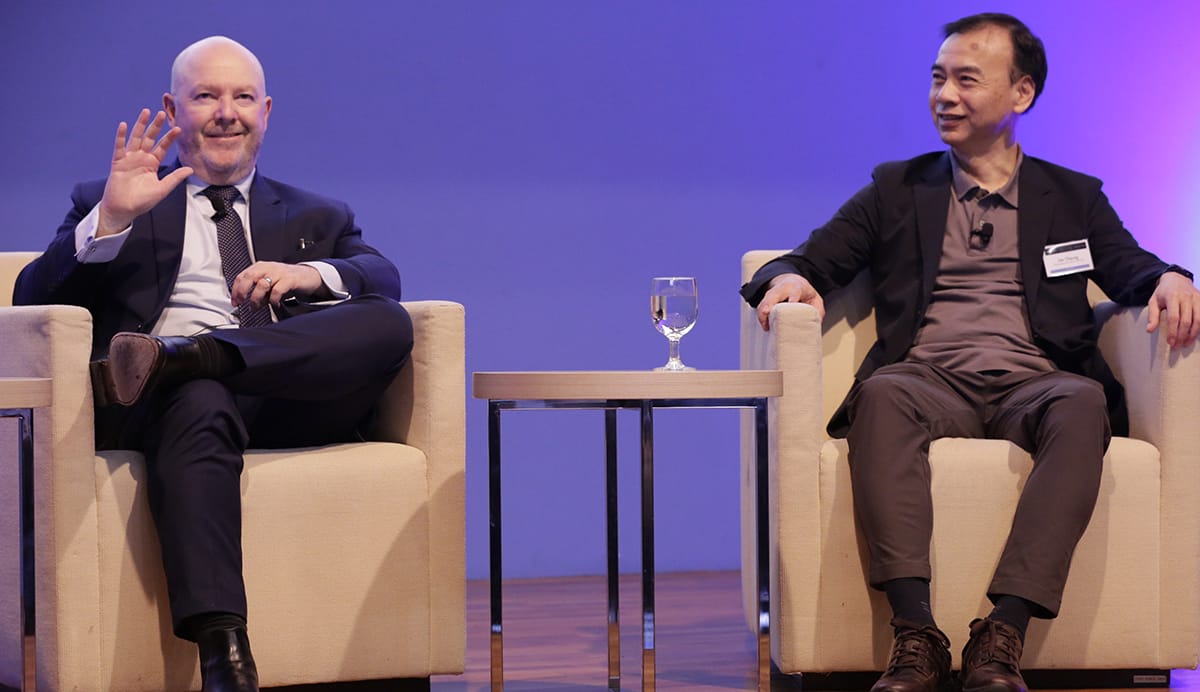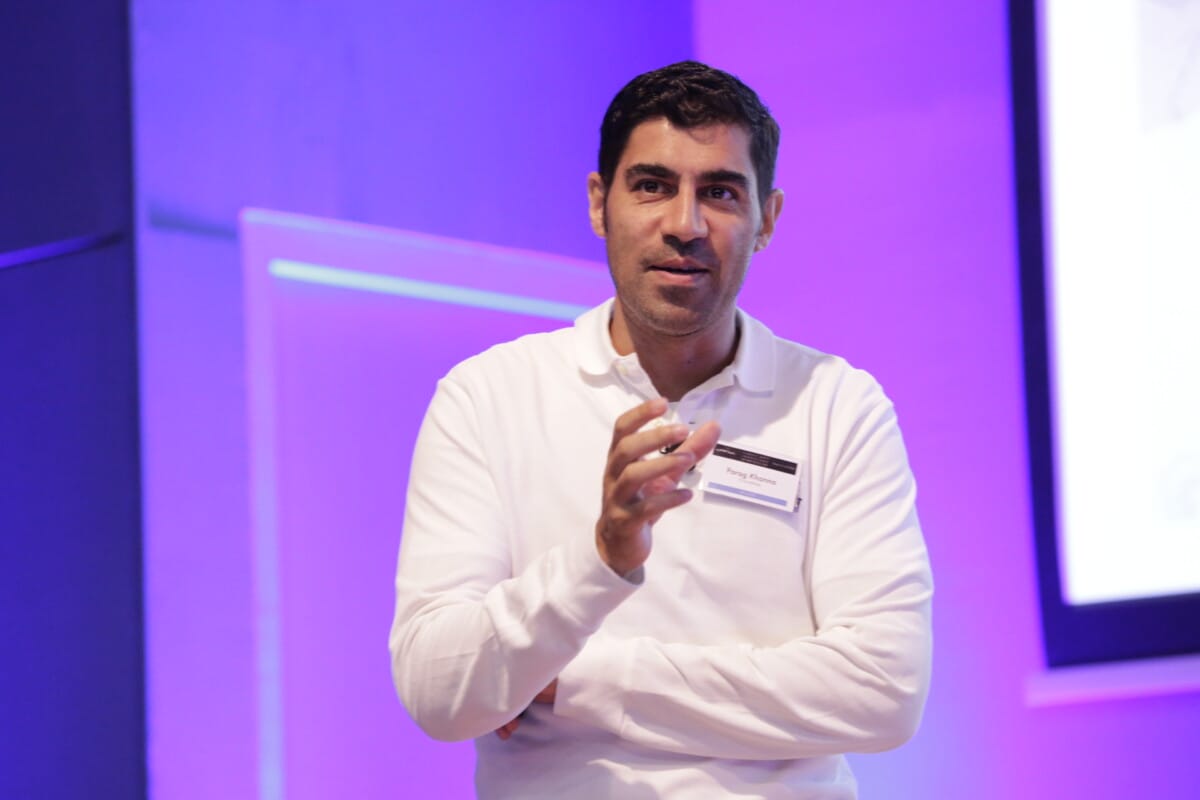Growth in prosperity and wealth across Asia isn’t a foregone conclusion and will only be a result of deliberate decisions and choices by policymakers and companies, the 2024 Top1000funds.com Fiduciary Investors Symposium has heard.
Future Fund director of research and insights Craig Thorburn told the symposium in Singapore that Asia’s destiny won’t happen by chance.
“One of my favourite quotes is: ‘Destiny is not a matter of chance; it’s a matter of choice[1]’,” Thorburn said.
“Asia’s destiny is not just going to be driven by its demographic pyramid. It’s also defined by the policy choices that the various leaders of these very different countries are going to be making. That is crucially important.”
Thorburn said the success of Singapore has come about through choice.
“When you look at potentially the success of India, and I would argue the last 10 years is a very good example of that, it has been done through successful incremental choice,” he said.
“When you look at what’s happened with China in recent years…part of that has been a matter of choice when it comes to the policy choices that the regime has put in place when it comes to its entrepreneurial society.”
Thorburn said investors should always bear this in mind when considering underlying fundamental issues such as demographics.
“You should have a bias towards deploying more to [Asia], but my one advice is always remember that…quote about destiny: it’s a matter of choice, not a matter of chance,” Thorburn said.
Thorburn said the $A212 billion Australian sovereign wealth fund currently has about 30 per cent of its total portfolio invested in Asia, which includes Australian exposure because “I do consider Australia as Asia” but does not include Russia because “we don’t own Russia”.
“I do believe that all of us should have a bias in our thinking around how do we look towards increasing our Asian exposure.
Constrained by the universe
Hong Kong Monetary Authority chief investment officer of asset allocation Joe Cheung agreed that “the future is Asia” but noted that as things currently stand, institutional investors are constrained by the investable universe.
“Currently, Asia still has much smaller market cap in the listed market side,” Cheung said. “And if we want to invest more in in Asia, now we have to make quite an active decision to overweight Asia.
“I’m sure, over time, the market cap of Asia will grow mainly through all the new listings, for example, in the public market; and also through more investments available in the private market,
“But currently, it is still quite a small proportion in our portfolio. And it’s very hard to make a conscious decision to overweight, to allocate more to Asia, because that’s an active decision that we are accountable for.”
Cheung said investors are entering a new regime where a recent focus on risk will be replaced by a closer focus on returns.
He said that between 2009 and 2020 the cash rate in the US was close to zero and no more than 1 per cent in 10 of those 12 years. He said this dragged down the whole yield curve.
“If you look at bond yields, in those 12 years the average, say, 10-year yield was something like 2.3 per cent, while inflation was close to 2 per cent,” he said.
“For most institutional investors [with], say, a typical 60/40 total portfolio, a lot of money is tied up in safe assets – government bonds, and so on. If you look at a large part of your portfolio not being to earn a real rate of return, of course you worry, and you would make some changes to deal with that.
“We take on more risk, right? So that’s the easiest way we can handle that low interest rate regime.”
Taking on more risk
Cheung said that in fact that’s what institutional investors did, with some analysis suggesting fixed income exposures were cut on average by as much as 15 per cent, equity exposures increased by 5 per cent, and exposures to alternatives including private equity increased by as much as 10 per cent.
Cheung said investors also employed strategies such as risk parity, which involved leveraging bond exposures and some equity exposures to increase returns.
In a regime where institutional investors have been increasing risk, and using some sort of leverage in order to earn a return, the focus naturally has been on returns.
“In the coming regime, most of us would agree that the level interest rate is not going to go back to near zero for a while,” Cheung said. “So for us, at least, we are earning a real return on our safe assets. And in that sense, the focus going forward will be back on risk rather than on return.”
Cheung said this would cause investors to rethink leverage-based strategies “because the cost of funding is no longer low”.
“And also [they] will revisit whether it makes sense for them to have more equity,” he said.
“That’s the biggest thing we are thinking about in terms of the changing regime, because of the changes in the level of interest rates.”
Thorburn said that in the past 18 months the A$212 billion ($144.3) Australian sovereign wealth fund has reallocated about A$70 billion of assets, with about $A7 of that reallocation away from hedge funds and towards mostly investment-grade credit.
“The reason for that is quite simple: we’re being paid for it,” he said. “For a long time, we haven’t been paid for that, and we haven’t seen conditions as attractive as this probably since the GFC. For us, it was a bit of a no-brainer to deploy into it.”
Thorburn said the decision to allocate away from hedge funds was driven by a desire to simplify the portfolio.
“We actually really like hedge funds – always have, always will,” he said.
“But they do add complexity to your portfolio, and in a world where you’re not quite sure – is it supposed to zig or is it going to zag? – you probably want to reduce that level of complexity in your portfolio. And that’s what we did.”
Thorburn said the fund didn’t have the luxury of reducing its bond allocation because it is already very low.
“Our bond exposure is done through derivatives,” he said. “We do have bond exposure, but it’s quite small in the general scheme of things. We also didn’t want to reduce our equity exposure, because we have a very aggressive risk target that we have to hit: Australian CPI plus 400 to 450 basis points is an aggressive target.
“If we’re going to reduce [equity exposure] even more, and it’s less than what some of you in this room would have, we need to be very careful if we’re going to make that decision.”
[1] “Destiny is not a matter of chance; it is a matter of choice. It is not a thing to be waited for, it is a thing to be achieved.”
– William Jennings Bryan (1860 – 1925)
https://www.pbs.org/wgbh/americanexperience/features/wilson-william-jennings-bryan/


